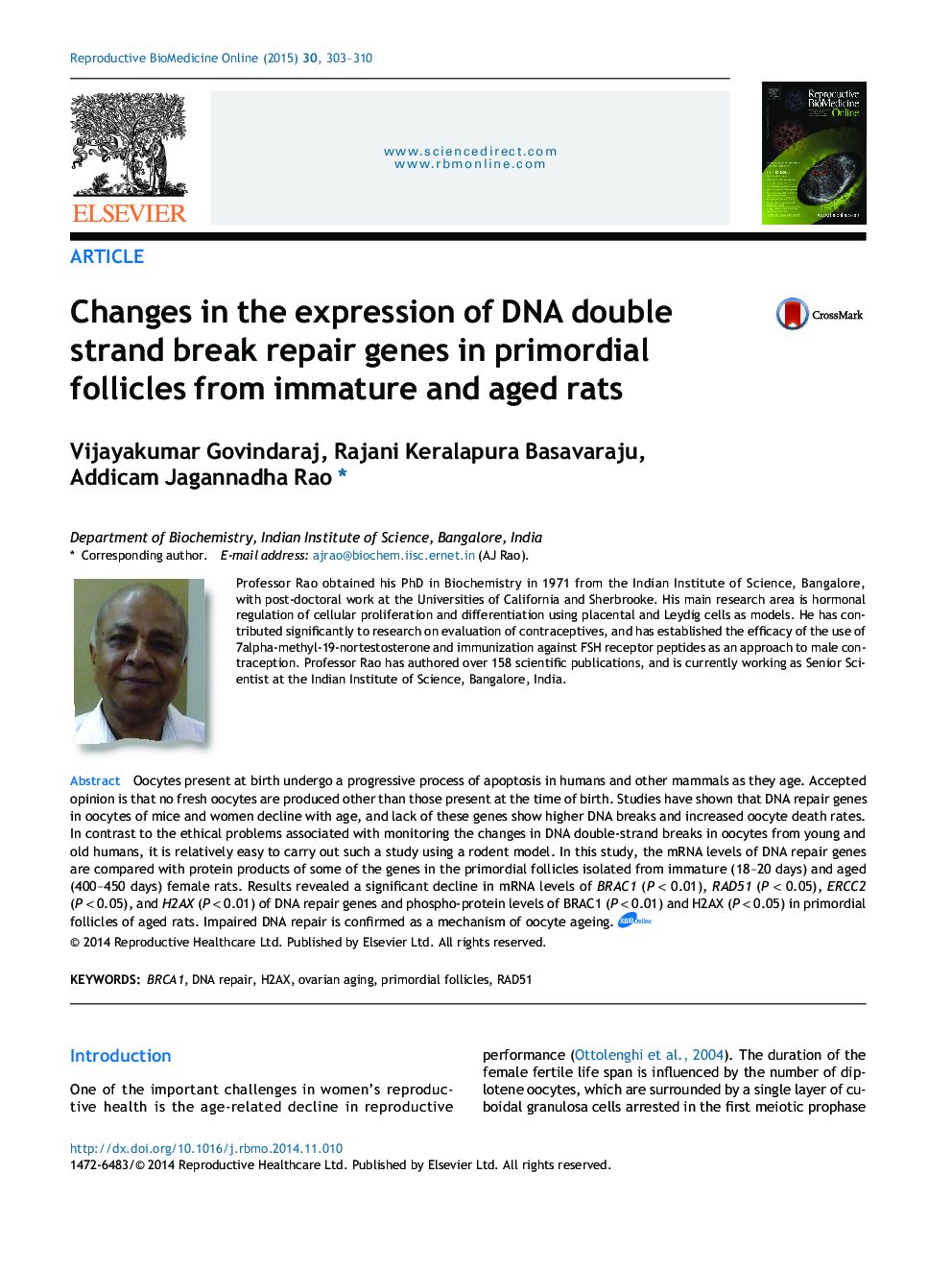| Article ID | Journal | Published Year | Pages | File Type |
|---|---|---|---|---|
| 3970109 | Reproductive BioMedicine Online | 2015 | 8 Pages |
Oocytes present at birth undergo a progressive process of apoptosis in humans and other mammals as they age. Accepted opinion is that no fresh oocytes are produced other than those present at the time of birth. Studies have shown that DNA repair genes in oocytes of mice and women decline with age, and lack of these genes show higher DNA breaks and increased oocyte death rates. In contrast to the ethical problems associated with monitoring the changes in DNA double-strand breaks in oocytes from young and old humans, it is relatively easy to carry out such a study using a rodent model. In this study, the mRNA levels of DNA repair genes are compared with protein products of some of the genes in the primordial follicles isolated from immature (18–20 days) and aged (400–450 days) female rats. Results revealed a significant decline in mRNA levels of BRAC1 (P < 0.01), RAD51 (P < 0.05), ERCC2 (P < 0.05), and H2AX (P < 0.01) of DNA repair genes and phospho-protein levels of BRAC1 (P < 0.01) and H2AX (P < 0.05) in primordial follicles of aged rats. Impaired DNA repair is confirmed as a mechanism of oocyte ageing.
